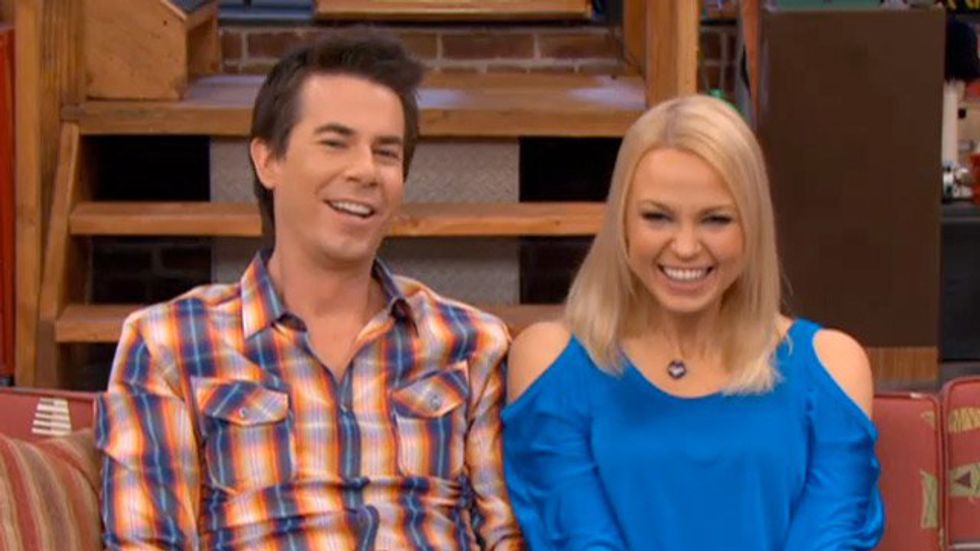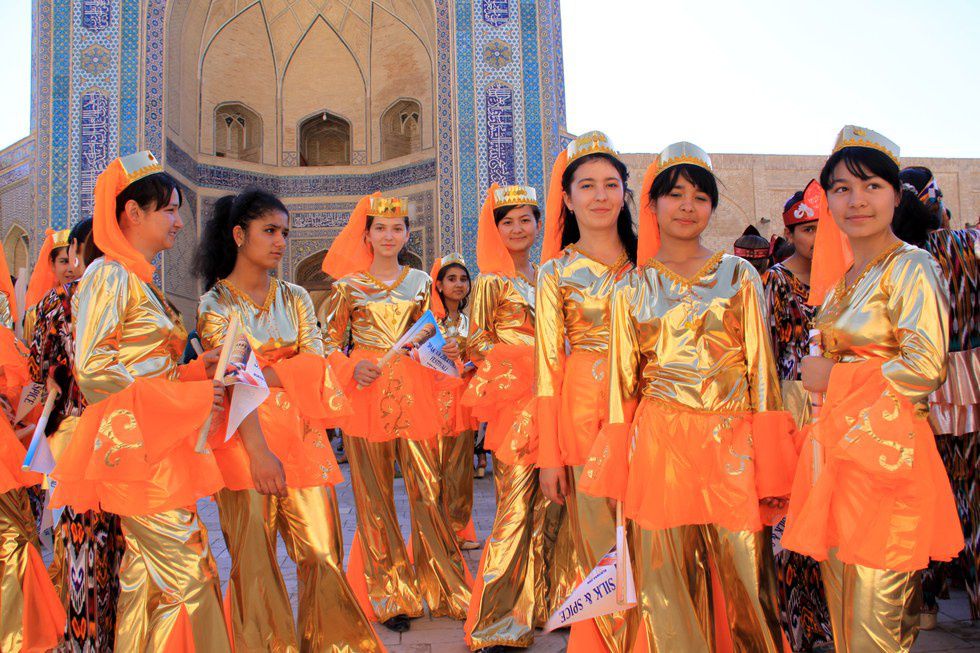It seems a little silly that a girl from Kazakhstan is writing an article touching upon the subject of representation. You may ask, "Do you really expect Hollywood to produce a film about Central Asians?" No, that is not at all what I am trying to get at. Rather then stating, "I demand greater representation of the Turkic people in Hollywood," I simply want to present a case that proves why representation plays such a huge role in an adolescent's mind.
When I think of representation, two things come to mind.
One -- "Borat: Cultural Learnings of America for Make Benefit Glorious Nation of Kazakhstan," or simply "Borat."
Two - an "iCarly" episode, in which Spencer brings home an "Uzbek" woman, named Krustacia, who can only communicate in "pure Uzbek." Many might not recall such an episode, so I will use a still from the episode to refresh your minds:
Here we see -- Spencer and his "Uzbek" lady friend on a date. Next, let me direct you to a photo taken at a silk festival in Bukhara, Uzbekistan:
Hmm... Something doesn't seem right... but I will give the producers the benefit of the doubt! Maybe by casting this blond, blue-eyed actress to play an "Uzbek" woman, they were bringing light to the overwhelming Russian presence in the country since the creation of the Soviet Union. Which OK, that kind of seems plausible.
However, Spencer explicitly tells his sister Carly that Krustacia can only communicate in Uzbek, and that is why he rented a movie in Uzbek for their date. Except, the movie is in Russian, which this blond, blue-eyed Uzbek woman doesn't speak.
These two instances of representation of Central Asians in popular media are similar. They're both ridiculous and extremely inaccurate. Because of Borat's considerable popularity, people's perception of my birth country skewed. When I introduced myself to others they would shout -- "Borat!" and laugh, recalling the ridiculous movie as a portrayal of my people. Such reaction to my roots led me to an unease. The subtle feeling grew into overpowering embarrassment. I couldn't express the shame I felt when all people could associate me with was that poorly written, poorly directed character.
I started being vague in my introductions -- "I'm from Central Asia, a country between Russia and China," hoping that those two countries would result in a positive association. Even more frightening was the moment when I was applying for citizenship that I found out that I had the opportunity to change my name. I was stern on adopting a western name. Names such as Jessica, Monica, Amy, and Katie filled my thoughts on a daily basis.
Yet, here I am. My name still ethnic as ever. Like I mentioned previously, it would be silly to expect Hollywood to change my perception of my culture. What rekindled my pride and love for my name and my culture was the win of Zhanar Dugalova at the Turkvision song contest in 2014. Yes, it seems petty and trivial, but seeing a woman (who shared my name!) receive love and admiration stirred something warm in my heart. It made me realize the absurdity of changing the name that has been with me all these years to assimilate into a culture that was meant to be a melting pot.
I will repeat again; it was not my point to criticize American media for the lack of portrayal of Turkic nations. It is, however, my point to expose the dangers of lack of POCs in media. As young boys and girls turn on their TVs it is completely conceivable for them to start hating their names, hair, origin, etc. Because television will always pick that blond, blue-eyed one over them.


























